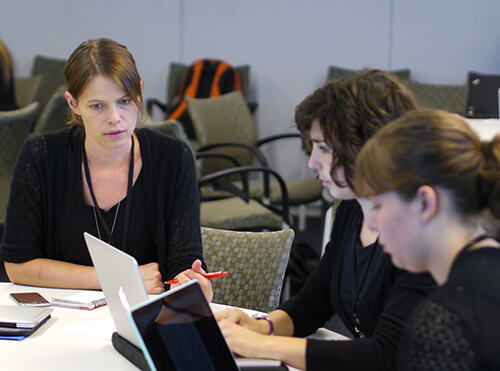Science is all about questions. Some questions are discrete and demonstrably knowable: When did Diplodocus live? But others are… bigger. If the (non-bird) dinosaurs never went extinct, would humans have ever evolved? These big questions are important because they instill a sense of wonder and they help reinforce the fact that no matter how much we know, there is still so much more to know. Every BiteScis lesson is tied to at least one of the following Big Questions. Educator material makes some suggestions for how to integrate these into the classroom, and additional information can be found below.
What does it mean to observe?
How many times have you been asked, “But how do we know that?” This big question gets students to think about how we know what we know. Science is based upon empirical evidence–evidence obtained by observation or experimentation. But how many different ways can phenomena be observed? What is the difference between direct observation and indirect observation? Are observations made in the lab more or less valid than observations made in the field? Can observations always be trusted, or can the senses be fooled?
What is life?
How do we know if something is alive or not? Textbooks provide checklists, indicating that to be “alive” something has to be made of cells, evolve, use energy, grow, reproduce, maintain internal balance, and respond to change. But what do each of those characteristics mean? What does it look like when bacteria respond to their environments? How do we measure a fungi’s responsiveness to its environment? How close are we to understanding what the first life looked like, and when how it came to be? And in today’s world in which both technology and viruses are understood to be playing a role in shaping life on Earth, some might even say that they are co-evolving with living things, do we need to think about changing our very definition of what it means to be alive?
Where did we come from?
When did our story begin? Was it when the first Homo sapiens evolved about 200,000 years ago? Or when our ancestors and the ancestors of modern chimpanzees split about 5–7 million years ago? Or do we go further back to the first animals (550 million years ago), the first multicellular life (3.5 billion years ago), or the first cells (3.8 billion years ago)? Or maybe we need to go all the bay back to Earth’s formation (4.6 billion years) or to the formation of the Universe (14.8 billion years ago)? Think of all the countless steps that have resulted in our being here, in this moment. How did it all happen? How much of it came about due to chance, and how much of it was predictable, governed by natural laws?



